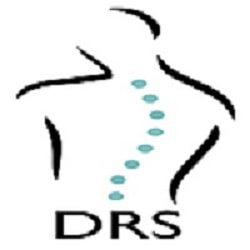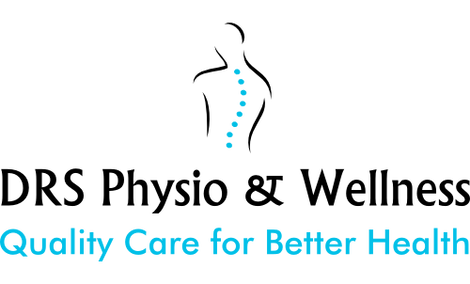psychedelics can extinguish negative thought patterns by rewiring neurotransmitters in the brain...the participants achieved better overall mental health and adopted positive thinking processes which helped them avoid anxiety and depression related feelings. What are psychedelic drugs? Serotonergic psychedelics are a class of organic and synthetic compounds that have been used for thousands of years by ancient cultures in various healing rituals and by the 20th century clinicians were using these compounds as adjuncts to psychotherapy. Unfortunately, these promising therapies were categorized by the U.S. as a scheduled 1 controlled substance by the 1970’s which created immense obstacles to further research into the benefits of psychedelic compounds. Recently, research into psychedelic drugs has seen a revival. The revival is likely due to the removal of several obstacles to research into some psychoactive drugs, allowing for relatively new research and treatment approaches to develop. Although the research into psychedelic drugs is limited, the few scientific studies that have been conducted, show that there are probable benefits in supporting the improvement of mental health disorders. What types of psychedelic drugs have shown beneficial results for mental disorders? Psilocybin: Derived organically in mostly dark-spored and gilled mushrooms. Used for thousands of years by ancient cultures for religious ceremonies. Dimethyltryptamine (DMT): Produced naturally in the brain, in small amounts, via the pineal gland. Also found in many plant species and utilized for thousands of years by Some South American countries in the form of a brew named Ayahuasca. Lysergic Acid Diethylamide (LSD): Derived from a fungus called ergot and synthesized from lysergic acid in 1938. First used clinically since 1947 as psychiatric drug. Methylenedioxymethamphetamine (MDMA): Laboratory synthesized in 1912 for its psychoactive effects. Has been used clinically and recreationally since the 1970’s. Trimethoxy phenethylamine (Mescaline): Organically occurs in the San Pedro cactus and first synthesized in 1919. Also, used by ancient cultures for thousands of years. What are the benefits of psychedelic therapy? Addictions Research is in development that suggest that psychedelics may be beneficial in reducing symptoms of addiction. For instance, a 2015 study involving 10 alcohol addicted participants underwent orally administered psilocybin therapy along with motivational enhancement therapy. For the first 4 weeks (prior to the administration of oral psilocybin), the participants did not experience an increase of alcohol abstinence. However, when the psilocybin was administered on the 5th week, the group experienced a significant decrease of alcohol dependency for up to 36 weeks. Overall, the study concluded that participants that experienced an intense psychedelic experience were more likely to abstain from alcohol. A 2016 study, concluded that psilocybin is also beneficial in smoking cessation. The study recruited 15 volunteers to be treated with 2-3 high doses of psilocybin along with cognitive behavioral therapy. At the 12-month mark, 10 of the participants that returned for a follow up were confirmed to be smoking abstinent. Another psychedelic plant compound that has shown promising results in the fight against addiction is Ibogaine. Although this drug has not been designated for use in addiction treatment, there is some anecdotal evidence from the 1960’s that shows it may have anti-addictive effects in heroine addicts. Furthermore, early research indicates that Ibogaine may work in a similar fashion to LSD and psilocybin in extinguishing addictive behaviors. Anxiety & Depression There is some evidence that indicates that psychedelic drugs may be beneficial in reducing feelings of anxiety and depression. Two studies from 2020 and 2021 did not prove conclusively that anxiety and depression were reduced in the participants. However, this was due to the methodological flaws in the studies. Moreover, what was evident from the studies is that psychedelics can extinguish negative thought patterns by rewiring neurotransmitters in the brain. As a result, the participants achieved better overall mental health and adopted positive thinking processes which helped them avoid anxiety and depression related feelings. A 2017 study looked at people with treatment-resistant depression. Researchers gave 20 people with mostly severe depression two doses of psilocybin 7 days apart, then followed up with them for 6 months. Researchers observed a significant reduction in symptoms for the first 5 weeks following treatment. At 5 weeks, nine participants had responded to treatment, and four had depression that was in remission. Participants were more likely to have improvements in their depression symptoms if they had quality psychedelic experiences during the drug dose. Terminal Illness, PTSD and Eating Disorders Furthermore, there is also research indicating that psychedelics can be beneficial in treating individual with terminal illnesses that suffer from anxiety and depression related symptoms; individuals with PTSD; and people suffering from eating disorders. Follow the links below for further information regarding psychedelics and terminal illness, PTSD and eating disorders. Terminal Illness: https://journals.sagepub.com/doi/full/10.1177/0269881116675513 PTSD: https://www.tandfonline.com/doi/abs/10.1080/02791072.2020.1817639 Eating disorder: https://link.springer.com/article/10.1007/s40263-020-00748-y Side Effect and Potential Risks Please be aware that psychedelic drugs can bring about immense consciousness shifts that may cause serious side effects. Always consult your doctor or licensed medical professional before beginning any therapy. Cardiovascular issues: Psychedelics are known to increase heart rate and blood pressure which may be unsafe for individuals with a history of heart conditions. Psychosis: Condition that may severely effect brain processes and occurs when the mind breaks from reality. Please note, psychosis is more likely to occur in individuals with conditions that are known to cause psychosis. Dread/Fear: Some individuals may feel a sense of dread and hallucinate images that they fear most. This may cause them to believe they are dying or even cause flashbacks of past traumatic events. It is very important to note, however, that despite these risks, most studies report few or no negative reactions. Disclaimer: The medical information on this site is provided as an information resource only, and is not to be used or relied on for any diagnostic or treatment purposes. This information should not be used as a substitute for professional diagnosis and treatment. Please consult your health care provider before making any health care decisions or for guidance about a specific medical condition. DRS Physio & Wellness expressly disclaims responsibility, and shall have no liability, for any damages, loss, injury, or liability whatsoever suffered as a result of your reliance on the information contained in this site. References Griffiths, R. R., et al. (2016). Psilocybin produces substantial and sustained decreases in depression and anxiety in patients with life-threatening cancer: A randomized double-blind trial. https://journals.sagepub.com/doi/full/10.1177/0269881116675513 Varker, T., et al. (2020). Efficacy of psychoactive drugs for the treatment of posttraumatic stress disorder: A systematic review of MDMA, ketamine, LSD, and psilocybin.https://www.tandfonline.com/doi/abs/10.1080/02791072.2020.1817639 Breeksema, J. J., et al. (2020). Psychedelic treatments for psychiatric disorders: A systematic review and thematic synthesis of patient experiences in qualitative studies. https://link.springer.com/article/10.1007/s40263-020-00748-y Hulzen, J. (2021). What to know about ibogaine treatment for addiction. https://www.medicalnewstoday.com/articles/ibogaine-for-addicition Johnson, M. W., et al. (2016). Long-term follow-up of psilocybin-facilitated smoking cessation [Abstract]. https://www.tandfonline.com/doi/abs/10.3109/00952990.2016.1170135?journalCode=iada20 Bogenschutz, M. P., et al. (2015). Psilocybin-assisted treatment for alcohol dependence: A proof-of-concept study [Abstract]. https://journals.sagepub.com/doi/abs/10.1177/0269881114565144 By Haninder DhillonCo-owner of DRS Physio & Wellness and DRS Mobile Therapy DRS Physio & Wellness is a well-established leader in the rehabilitation field. Our expert practitioners have over 18 years of experience and strive to provide the highest level of care so you can reach maximum recovery from injuries and other health-related problems. Please visit us for more information.
0 Comments
Your comment will be posted after it is approved.
Leave a Reply. |
BLOG Owner:
Co-owner of DRS Physio & Wellness and DRS Mobile Therapy. Archives
February 2024
Categories
All
|
|
PROUDLY CANADIAN OWNED & OPERATED
Copyright 2023 DRS Physio & Wellness. All rights reserved.
Disclaimer: All information is intended for your general knowledge only and is not a substitute for medical advice or treatment. You should seek medical care immediately for any specific health issues. Use of this online service is subject to the Disclaimer and the Terms of Service.
Webmaster and Designer contact: [email protected]
PRIVACY POLICY
Copyright 2023 DRS Physio & Wellness. All rights reserved.
Disclaimer: All information is intended for your general knowledge only and is not a substitute for medical advice or treatment. You should seek medical care immediately for any specific health issues. Use of this online service is subject to the Disclaimer and the Terms of Service.
Webmaster and Designer contact: [email protected]
PRIVACY POLICY



 RSS Feed
RSS Feed